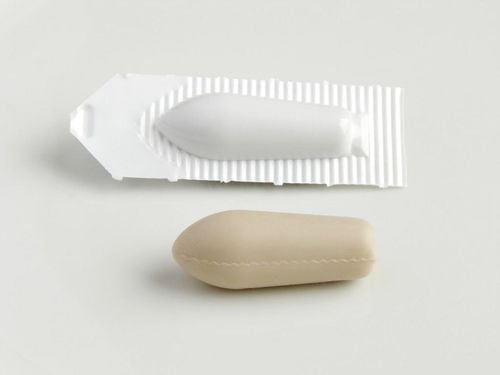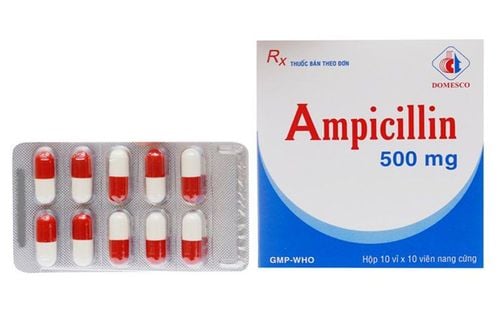Koact is a broad-spectrum antibiotic. This medication is used for various bacterial infections. This article delves into the specific applications of Koact in medical treatment.
1. Uses of Koact 625
What is Koact 1000? Koact 625 is an antibiotic composed with a combination of two active ingredients: Amoxicillin 500mg (as Amoxicillin trihydrate) and Clavulanic acid 62.5 mg (as Potassium clavulanate). In addition, Koact also has a 1000mg dosage, which is Koact 1000 with the composition of Amoxicillin 875 mg and clavulanic acid 125mg.
Amoxicillin is a semi-synthetic antibiotic belonging to the beta-lactam group with a broad spectrum of activity against many Gram-negative and Gram-positive bacteria. Its mechanism of action is to inhibit the synthesis of bacterial cell walls. However, amoxicillin is easily broken down by beta-lactamase enzymes produced by some Gram-negative bacteria and staphylococcus (Staphylococcus aureus), which hydrolyze the beta-lactam ring in the structure of amoxicillin. Therefore, this antibiotic has limited effectiveness against strains of bacteria that produce this enzyme.
Clavulanic acid has a higher affinity for beta-lactamase enzymes produced by bacteria than amoxicillin, so it binds to these enzymes and prevents them from destroying the beta-lactam ring of beta-lactam antibiotics. It has a high affinity for beta-lactamase because clavulanic acid has a structure similar to Penicillins and Cephalosporins. Therefore, clavulanic acid is able to inhibit beta-lactamase produced by most Gram-negative bacteria and Staphylococcus aureus.
When these two substances are combined, Clavulanic acid protects amoxicillin from being broken down by lactamase enzymes, thereby expanding the antibacterial spectrum of Amoxicillin. By being used together with clavulanic acid, there is no change in the effect or mechanism of action of amoxicillin.
The use of Koact 1000 and Koact 625 is to protect the body from many types of bacteria such as Gram-negative and Gram-positive bacteria, including Staphylococcus aureus.
2. Indications and contraindications for Koact
Koact 625 is used in the following cases:
- Upper respiratory tract infections such as rhinopharyngitis, rhinosinusitis, otitis media, tonsillitis.
- Lower respiratory tract infections caused by susceptible bacteria or beta-lactamase-producing bacteria: Acute periods of chronic bronchitis, lobar pneumonia, bronchopneumonia.
- Urogenital infections caused by bacteria such as E.coli, Klebsiella, ...: Cystitis, urethritis, pyelonephritis, genital infections, postpartum infections, post-abortion infections or prophylaxis after procedures.
- Skin abscesses, boils, bacterial dermatitis.
- Oral infections such as stomatitis, dental abscess, gingivitis.
- Bone infections, osteomyelitis.
Koact is contraindicated in the following cases:
- Allergy to Penicillin or other beta-lactam antibiotics.
- Cross-allergy may occur with Cephalosporin antibiotics.
- Patients with a history of jaundice or those with antibiotic-related hepatic dysfunction.
- Patients with severe renal impairment should not use this antibiotic.
- Avoid application in patients with infectious mononucleosis, as there is a high risk of rash in these patients if they use Amoxicillin.
3. Dosage and Instruction for use of Koact
The drug is taken orally with water, do not chew or crush the tablet. Please note that to increase drug tolerance in the gastrointestinal tract, it should be taken at the beginning of a meal (on an empty stomach) so that the drug can be best absorbed.
Dosage of Koact:
- Adults and children 12 years and older: Mild to moderate infections: 1 tablet of Koact 625 every 12 hours. Severe infections: 1 tablet of Koact 625 every 8 hours or 2 dosing times per day with 1 tablet of Koact 1000 each time.
- Children under 12 and weighing < 25kg should be treated with the drug in suspension or sachet form.
- Elderly: No dose adjustment is required and can use the same dose as normal adults. If there are signs of renal impairment, the dosage reserved to renal impairment patients should be applied.
- Renal impairment: Adjust the dose according to creatinine clearance.
Note: Treatment duration should not exceed 14 days.
4. Possible side effects of Koact
As with other drugs, the use of Koact 625 or Koact 1000 may cause side effects, including:
- Diarrhea, stomach pain, and itching are common side effects.
- Less common side effects: Eosinophilia, nausea and vomiting, hepatitis and obstructive jaundice, increased liver markers.
- Rare side effects: Anaphylactic reactions (difficulty in breathing, abdominal pain, urticaria, facial swelling, throat swelling…), Quincke's edema, slightly decreased platelet count, leukopenia, hemolytic anemia, pseudomembranous colitis, Stevens-Johnson syndrome, exfoliative dermatitis, multiforme erythema, toxic epidermal necrolysis, interstitial nephritis.
In case of experiencing any rare side effect, you should go to the nearest medical facility for prompt treatment. In addition, if you experience any other side effects that affect the use of the drug, you should notify your doctor immediately for appropriate adjustment.
5. Precautions of using Koact
Some things to note about using Koact include:
- Inform your doctor about your medical and allergic history before being advised about the medication.
- Adhere to the correct dosage and duration of use, do not arbitrarily increase the dose, or stop taking the medication when you recognize signs of improvement but have not had enough doses to avoid the risk of antibiotic resistance, which is very dangerous.
- If you have already shown signs of resistance to this type of antibiotic, such as not responding to the drug after more than 2 days of use, then this antibiotic should not be indicated any more.
- Koact may interact with other drugs, so you should inform your doctor about the other medications you are using. Some drugs that have been proved to interact with this antibiotic are: Nifedipine, Methotrexate, Allopurinol, anticoagulants, oral contraceptives…
- During pregnancy, using Koact can have adverse effects on the fetus, so it should be avoided in this period. When breastfeeding, this medication can also be excreted into breast milk, so consideration is necessary to minimize the harms to the breastfeeding baby.
- Store the drug in a dry place, at a temperature below 30 degrees C, avoid direct light and keep out of the reach of children.
Koact is a broad-spectrum antibiotic and can be used for many people with bacterial infections. However, as an antibiotic, it should be used under the direction of a doctor, patients should not arbitrarily use the drug to avoid potential risks to the body and antibiotic resistance.
Follow the Vinmec International General Hospital website to learn more about health, nutrition, and beauty to protect the health of yourself and your loved ones.
Please dial HOTLINE for more information or register for an appointment HERE. Download MyVinmec app to make appointments faster and to manage your bookings easily.













